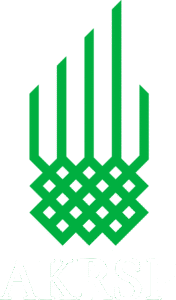AKRSP has received the Energy Globe Award for its rural electrification project in Chitral, Pakistan. The award recognises innovative and sustainable projects that respond to environmental challenges and support communities. AKRSP won the award for installing two micro hydropower units in Chitral – one in Yarkhoon and another in Laspur valley – providing electricity to over 3,000 households.
About AKRSP
Our Mission
To improve the quality of life of vulnerable communities in partnership with the government and civil society.
Our Vision
An empowered, equitable, socially cohesive, and economically prosperous society.
History and Milestones
The Aga Khan Rural Support Programme (AKRSP) was established in 1982 by the Aga Khan Foundation with the aim of improving the quality of life of local communities, primarily in Gilgit-Baltistan and Chitral. The programmes initially started in Gilgit district before expanding to all five districts of the then Northern Areas, later renamed Gilgit-Baltistan, as well as the Chitral district of the Northwest Frontier Province (NWFP), later renamed Khyber Pakhtunkhwa (KPK).
These areas were among the poorest and most geographically isolated parts of Pakistan, characterised by a spatial poverty trap due to poor human, physical, and natural endowments. The population largely depended on subsistence agriculture, with chronic deficits in basic social services, physical infrastructure, and market access. The region also experienced an institutional transition from traditional princedoms to local government, reshaping governance and community participation in development. A major transformation came with the construction of the Karakoram Highway, which improved connectivity, trade, and access to resources.
AKRSP initially had two objectives:
a) To contribute to doubling the incomes of the people of Gilgit, Baltistan, and Chitral over a ten-year period.
b) To develop replicable approaches for community development.
AKRSP started its work as a catalyst for rural development by organizing communities, working with them to identify development opportunities, and promoting the provision of services needed to tackle the specific problems of high mountain regions.
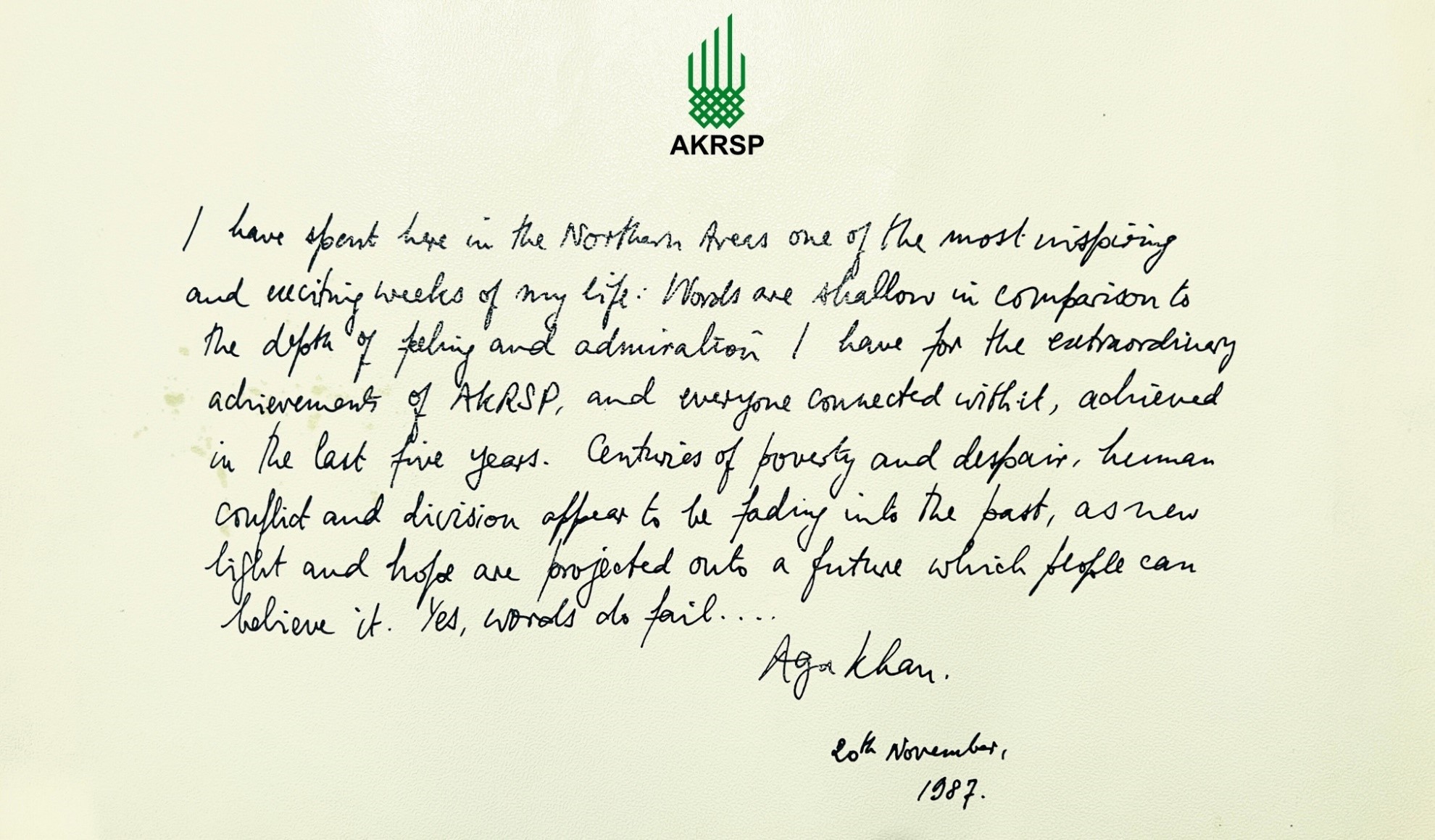
Approach and Philosophy
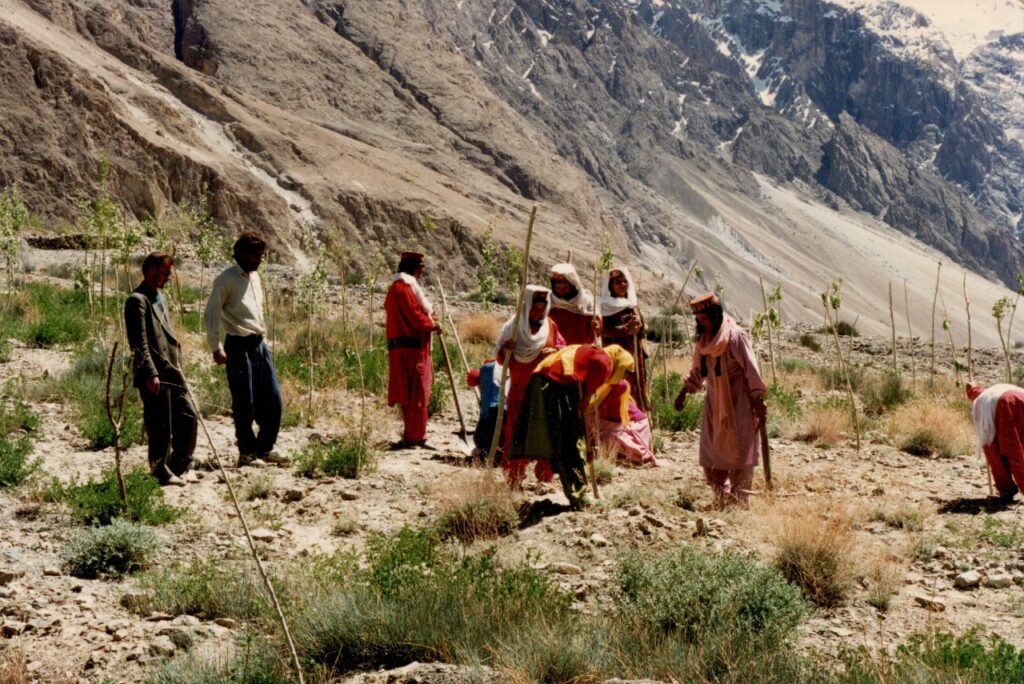
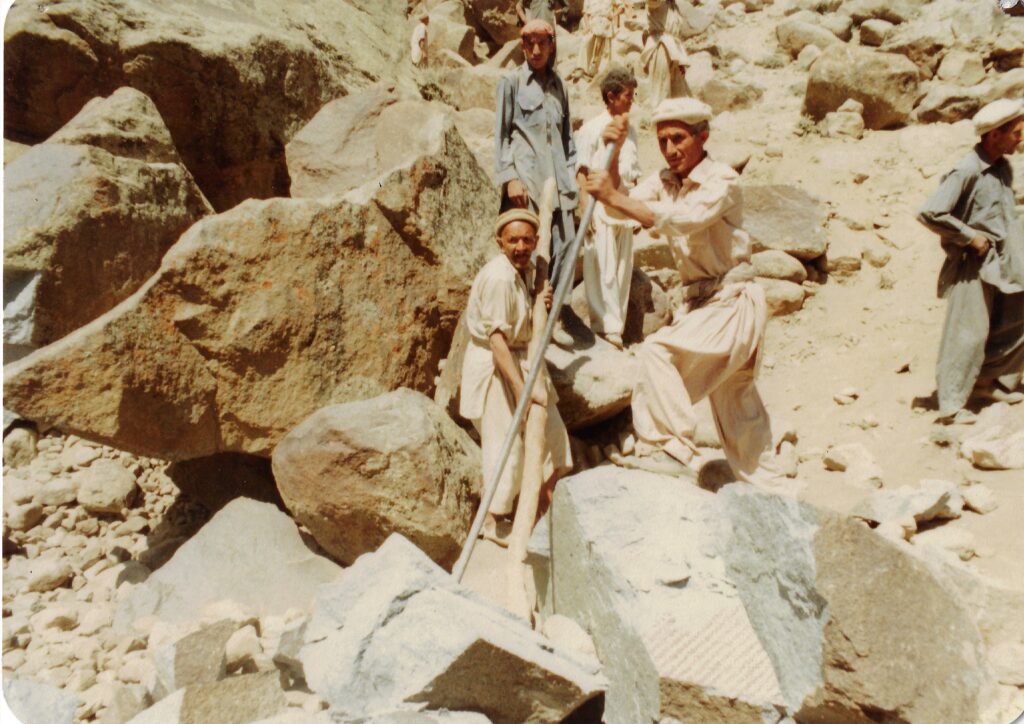
AKRSP started out with an approach that addressed three fundamental areas: a) organisation; b) skills; and c) capital. The underlying premise was that people have the potential and the will to improve their lives, but lack these three essential ingredients. By addressing these constraints, AKRSP believed that communities could take on larger development challenges by making effective use of their resources and opportunities.
Based on this approach, all households, including the less advantaged, were encouraged to come together to form village and women’s organisations (V/WOs) that not only amplified the local voices but also identified projects benefiting the entire community. Members were further encouraged to save money and build their capacities in skills ranging from credit and accounts management to the introduction of cash crops, ensuring long-term socio-economic resilience.
AKRSP continues to place strong emphasis on community engagement and participatory development, rooted in the belief that local communities have the potential to plan and manage their own development. This approach, which initially began with V/WOs, has evolved to form Local Support Organisations (LSOs) and is now engaging broader and all-inclusive civil society groups.
Key Achievements
Over the years, AKRSP has made significant contributions to the socio-economic development of Gilgit-Baltistan and Chitral regions. The programme’s holistic approach has contributed to improved livelihoods, enhanced environmental sustainability, and strengthened community resilience. Some of its key achievements include:
- Doubling in the average income
- Implemented community-driven small and medium development interventions
- AKRSP’s success has led to the replication of the programme
- The First Micro Finance Bank Limited, Pakistan (FMFB-P)
The World Bank assessments of AKRSP showed that in the first 10 years, AKRSP’s interventions contributed to a doubling in the average income of a million people in northern Pakistan.
AKRSP successfully implemented community-driven small and medium development interventions including:
- Completed over 4,706 small infrastructure projects, benefiting more than 380,000 households such as bridges, roads, irrigation channels, and hydropower units.
- Planted tens of millions of trees and developing marginal lands.
- Established more than 5,378 community organizations (V/WOs & LSOs). These organisations have saved more than PKR 500 million, and disbursed PKR 2 billion as loans.
- Trained over 126,000 women and men in technical and vocational fields.
- Promoted sustainable energy solutions, earning recognition with awards like the Ashden Award for Sustainable Energy in 2004.
AKRSP’s success has led to the replication of the programme in Pakistan and beyond as RSPs, and its approaches have shaped further collaborations led by the Aga Khan Foundation in other countries such as Tajikistan, Afghanistan, Kenya, and Mozambique.
The First Micro Finance Bank Limited, Pakistan (FMFB-P) was established in 2002 as a nation-wide microfinance bank through a structured transformation of the credit and savings section of the Aga Khan Rural Support Programme (AKRSP). The FMFB-P was later transformed to HBL Microfinance Bank Ltd with the mission to respond to poverty and contribute to the social and economic well-being of society by providing opportunities to thousands of under-privileged households.
- Doubling in the average income
- Implemented community-driven small and medium development interventions
- AKRSP’s success has led to the replication of the programme
- The First Micro Finance Bank Limited, Pakistan (FMFB-P)
The World Bank assessments of AKRSP showed that in the first 10 years, AKRSP’s interventions led to a doubling in the average income of a million people in northern Pakistan.
AKRSP successfully implemented community-driven small and medium development interventions including:
- Completed over 4,706 small infrastructure projects, benefiting more than 380,000 households such as bridges, roads, irrigation channels, and hydropower units.
- Planted tens of millions of trees and developing marginal lands.
- Mobilised over $5 million in village savings and established more than 5,378 community organizations (V/WOs & LSOs. These organisations have saved more than PKR 500 million, and disbursed PKR 2 billion as loans.
- Trained over 126,000 women and men in technical and vocational fields.
- Promoted sustainable energy solutions, earning recognition with awards like the Ashden Award for Sustainable Energy in 2004.
AKRSP’s success has led to the replication of the programme in Pakistan and beyond as RSPs, and its approaches have shaped further collaborations led by the Aga Khan Foundation in other countries such as Tajikistan, Afghanistan, Kenya, and Mozambique.
The First Micro Finance Bank Limited, Pakistan (FMFB-P) was established in 2002 as a nation-wide microfinance bank through a structured transformation of the credit and savings section of the Aga Khan Rural Support Programme (AKRSP). The FMFB-P was later transformed to HBL Microfinance Bank Ltd with the mission to respond to poverty and contribute to the social and economic well-being of society by providing opportunities to thousands of under-privileged households.
Awards & Recognitions
AKRSP has received national and international recognition for its pioneering work in sustainable development, community empowerment, and rural transformation. Some of the notable awards and accolades received over the years are featured below.
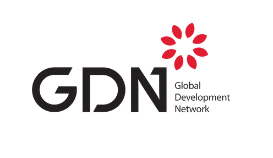
2005 Global Development Awards
AKRSP won the Global Development Award for Most Innovative Development Project. The award, which was announced at the Seventh Annual Global Development Conference held in St. Petersburg, Russia, was given to the development projects that are judged to have the greatest potential for benefiting the poor in developing countries.v
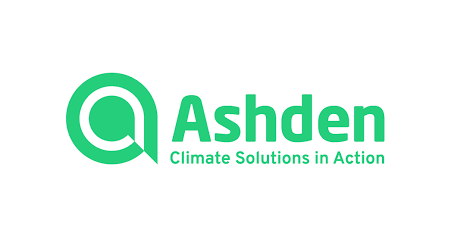
Ashden Award for Sustainable Energy, or “Green Oscar 2004″
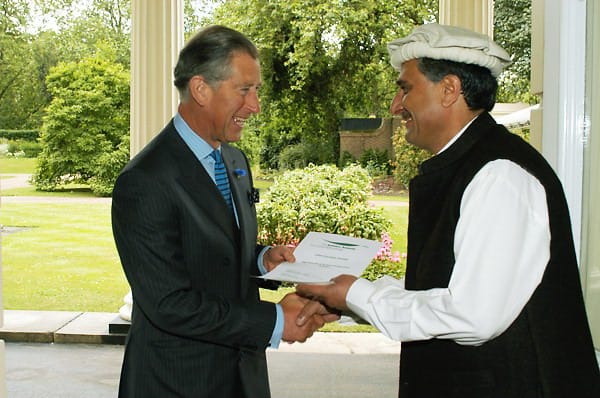
AKRSP received the award for its programme of mini-hydels, or micro-hydroelectric plants, in the Gilgit-Baltistan and Chitral. The Ashden Award cited the AKRSP for the sustainable and eco-friendly solution: “Unlike dams, which invariably damage the local eco-system, the micro-hydel technology used by AKRSP involves simply digging a narrow channel to divert water along a hillside and into a pipe, creating enough pressure to turn a turbine and so produce 20 -100kw of power.” The impact in areas off the electricity grid has been significant. Over 180 micro-hydel units supplying electricity to 50 percent of the population of Chitral have been built. The projects are implemented, maintained and managed by the communities themselves.
Current Directions
In 2021, the Aga Khan Foundation and the Aga Khan Rural Support Programme (AKRSP) launched a review process to shape its current strategic directions, recognising the evolving challenges and needs of communities, national and regional trends, perceived coverage and programme gaps, and the desire for a renewed organisational direction and purpose.
AKRSP built on its existing geographic presence across Gilgit-Baltistan and Chitral, further enhancing its reach to under-served districts, including expansion to Diamer district in 2022 and the three coastal districts of Thatta, Sujawal, and Badin in Sindh in 2024.
The organisation’s focus has evolved from income-generating activities to improving key elements of the quality of life of local communities by concentrating on seven thematic areas: agriculture and food security, civil society, climate resilience, early childhood development, education, health and nutrition, and work and enterprise. Its signature community-driven development approach continues to focus on mobilising, engaging, and strengthening civil society participation.
A cross-cutting emphasis remains on building sustainable assets—such as roads, bridges, energy systems, irrigation facilities, greenhouses, and internet connectivity—to address spatial poverty in remote and high-altitude areas, promote gender equality, and ensure the inclusion of both women and men in all areas of development.
